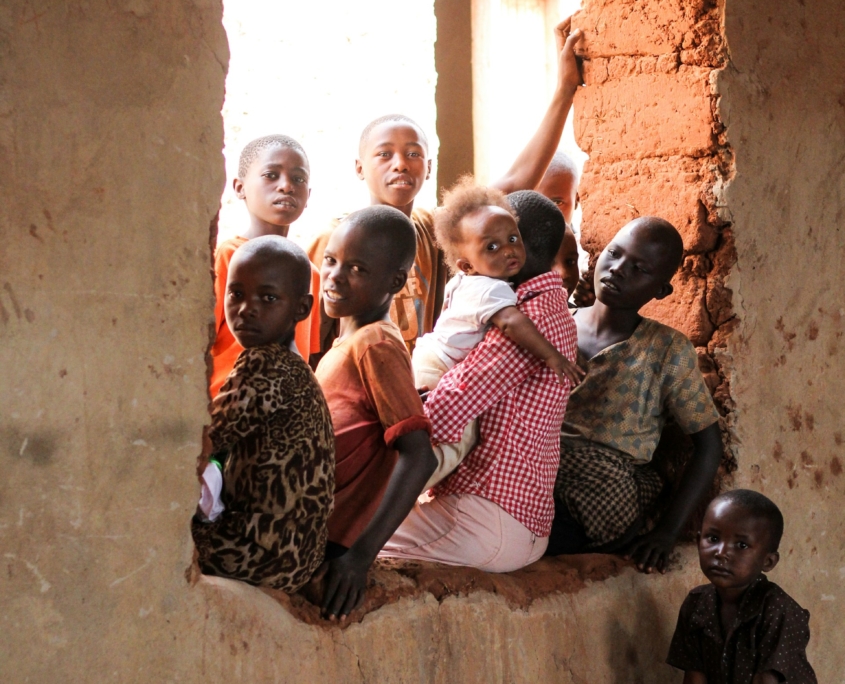Heart for Africa: Fighting Hunger in Eswatini
 In Eswatini, hunger remains an urgent and pressing issue, with a significant portion of the population struggling to obtain reliable access to food. Recent reports indicate a persistent rise in hunger rates across the nation, with roughly 30% of the population affected by severe food insecurity.
In Eswatini, hunger remains an urgent and pressing issue, with a significant portion of the population struggling to obtain reliable access to food. Recent reports indicate a persistent rise in hunger rates across the nation, with roughly 30% of the population affected by severe food insecurity.
Despite efforts to address this, the hunger challenge along with other health concerns continues to cast a shadow over the lives of many Eswatini citizens. However, amid these realities, nonprofits such as the Heart for Africa Organization have emerged as helpful allies committed to combating hunger and malnutrition through innovative and sustainable initiatives. Its unwavering dedication and support signal a potential turning point for the communities fighting hunger in Eswatini.
The Genesis of Heart for Africa
Janine and Ian Maxwell founded Heart for Africa in 2003, driven by a desire to find purpose following the September 11 attacks in the United States. Janine’s journey took her to Africa, where she confronted the harsh realities of hunger and illness.
Witnessing the daily battles of children, mothers and grandmothers for survival propelled Janine to use her corporate experience for a greater cause. Together, Janine and Ian established Heart for Africa, a nonprofit organization committed to tackling hunger, poverty and disease in Eswatini.
Addressing Eswatini’s Pressing Needs
Janine and her husband’s founding of Heart for Africa quickly positioned the organization as a critical player in addressing Eswatini’s severe challenges. Its focus on this particular nation stems from its acute hunger and health crises. Eswatini, home to just more than one million people, faces some of the world’s harshest conditions, with an average life expectancy of merely 29 years, a stark contrast to the United States (U.S.), where the life expectancy stands at 78 years for its 320 million inhabitants.
This dramatic difference underscores the health care disparities that contribute to nearly half of Eswatini’s population living below the poverty line. Given these dire statistics, Heart for Africa’s commitment to providing hunger and medical aid is both urgent and essential for improving the lives of Eswatini’s residents.
Addressing Child Hunger in Eswatini
In 2009, Heart for Africa launched a feeding program in partnership with rural churches in Eswatini, aiming to feed orphaned children within these communities. More than 350 churches sought support from this initiative, with selections favoring those in the country’s most remote areas. This marked a significant effort to combat child hunger and provide essential aid, laying the groundwork for sustainable development.
By its tenth anniversary in 2019, the organization had not only continued to feed hungry children but had also introduced “well-child check-ups” at its church partner sites to monitor health and wellness. Heart for Africa aims to eliminate malnutrition among the populations it serves through its network of 30 church partners. Additionally, there are plans to increase the feeding program from two to seven days per week at all partner churches, furthering its commitment to nurturing the well-being of Eswatini’s children.
Project Canaan: Combating Hunger
Heart for Africa has introduced initiatives like Project Canaan, focusing on long-term solutions to hunger in Eswatini. This comprehensive land development program introduces various approaches to teaching agriculture by utilizing outdoor and greenhouse crop production, dairy farming, livestock raising and fruit and crop production where feasible. The produce supports Eswatini’s populations, with participants working in sustainable communities.
In addition, Project Canaan aims to foster self-sufficiency and long-term resilience against food insecurity and poverty within local communities. It includes employment training and educational programs to equip community members with sustainable agricultural practices, empowering them with essential skills and knowledge for their future.
Agricultural Projects by Heart for Africa
At the core of this nonprofit is a deep-seated commitment to effect real change in the lives of people and communities throughout Eswatini. Heart for Africa is at the forefront of transformative change through its wide array of innovative programs and unwavering dedication, tackling crucial issues and driving sustainable development.
In addition, this commitment has led to significant infrastructure developments, including the construction of a greenhouse in 2015. This project is part of its ongoing efforts to enhance and diversify agricultural activities, signifying a move toward sustainable farming practices and the cultivation of high-value crops like vanilla. This venture not only promises future income but also creates numerous job opportunities, given its labor-intensive nature.
Food Security through Innovative Farming
Another development that benefits those struggling with hunger in Eswatini is the 30 acres of irrigated fields maintained by Heart for Africa where food is grown for local communities. This farming practice was recently incorporated into the organization’s strategic approach to addressing food insecurity and promoting sustainable agriculture. Since Eswatini currently imports 95% of its fruits and vegetables, the country’s population must shift toward growing food to reduce the reliance on and cost of importation.
In addition to the irrigation fields, Heart for Africa has developed 140 acres of dry fields for maize silage and hay production. This is also integral for fighting hunger in Eswatini since it ensures a sustainable resource for livestock, further contributing to food security and economic stability in the region.
– Caleb Ilayan
Photo: Unsplash
